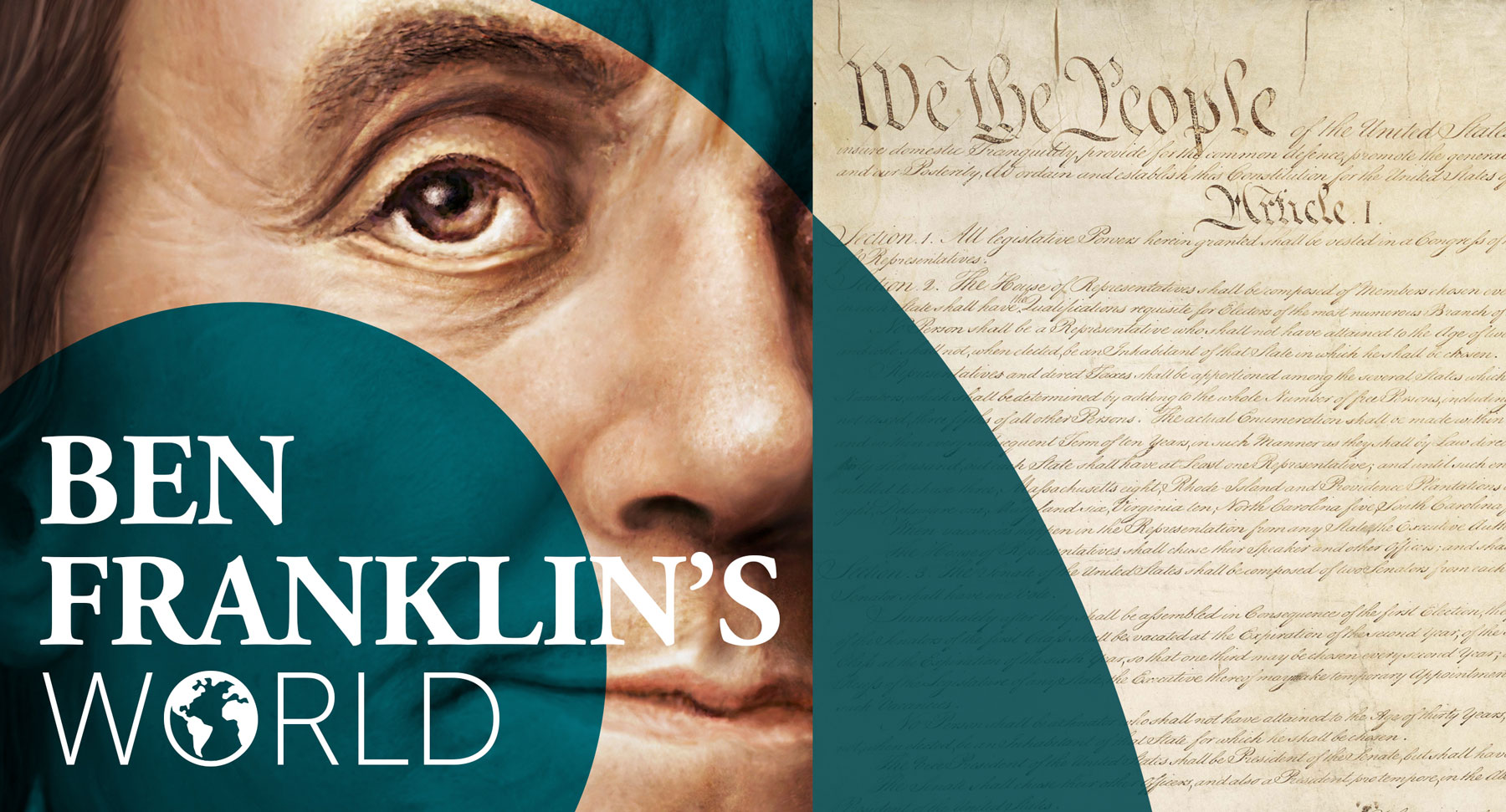A Constitution Day Playlist from Ben Franklin’s World: A Podcast About Early American History
On September 17, 1787, the Constitutional Convention came to an end and the United States emerged with its founding document, the United States Constitution. The next day, one of Maryland’s delegates at the convention, James McHenry, wrote the following in his diary:
“A lady asked Dr. Franklin well Doctor what have we got a republic or a monarchy—A republic replied the Doctor if you can keep it.”1
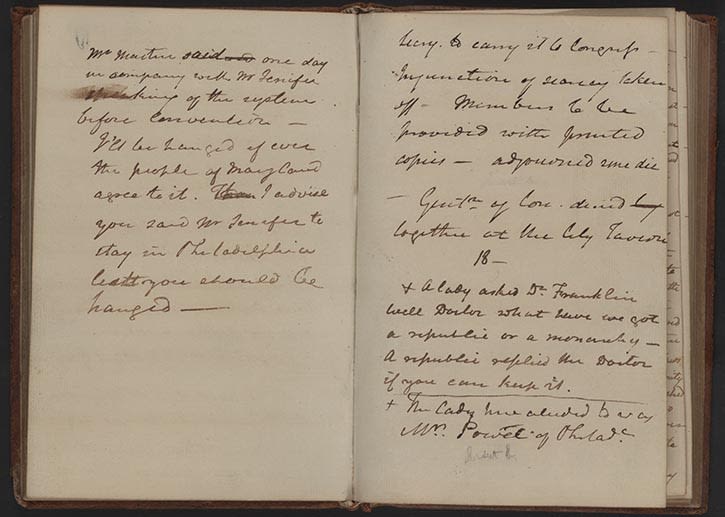
Americans have retold some version of this story for over two hundred years now, and it continues to capture something essential to the American experiment. In this story, Benjamin Franklin acknowledged that the delegates to the Constitutional Convention had created a new government, but it was “We the people” who needed to oversee and maintain it.
In the democratic republic formed by the Constitution, power is held by the people, who elect representatives to serve the government on their behalf. As many of the framers believed, this form of government requires an informed citizenry in order to succeed.2 When power lies with the people, they are not only entrusted with making educated voting decisions, but also with ensuring that their elected leaders behave wisely and with keeping the forces of tyranny at bay. Thomas Jefferson echoed these ideas in Virginia’s Bill for The More General Diffusion of Knowledge, which states that the best way to protect government is for citizens to be well-informed, especially in areas of history.3
National Constitution Day, also called National Citizenship Day, is an ideal time to reflect on our role and responsibilities as citizens, and this playlist of past Ben Franklin’s World episodes can serve as a great place to start.
The Articles of Confederation
We can’t fully understand the United States Constitution without learning about our nation’s first constitution, the Articles of Confederation. Our featured Articles of Confederation episode explores the impact of the limited powers granted to the Federal government under the Articles and what ultimately led to the states coming together for the 1787 Constitutional Convention.
- Episode 179: George Van Cleve, After the Revolution: Governance During the Critical Period
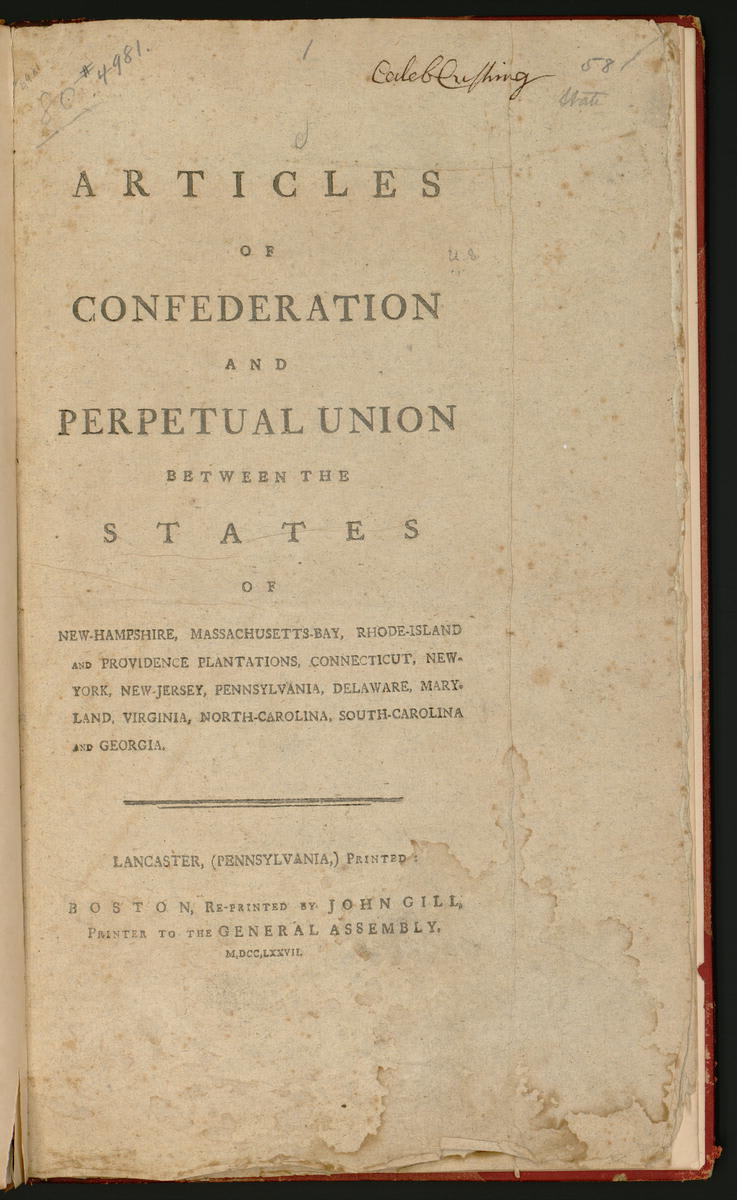
The Constitutional Convention
How was the United States Constitution created? What were some of the issues debated at the Constitutional Convention in 1787, and what compromises came out of those debates? These episodes provide an overview of the Constitutional Convention itself, including why it was convened, the compromises made, and how and why James Madison wrote his famous notes about the Convention’s proceedings.
- Episode 143: Michael Klarman, The Making of the United States Constitution
- Episode 107: Mary Sarah Bilder, Madison’s Hand: Revising the Constitutional Convention
- Episode 287: Elections in Early America: Presidential Elections & The Electoral College
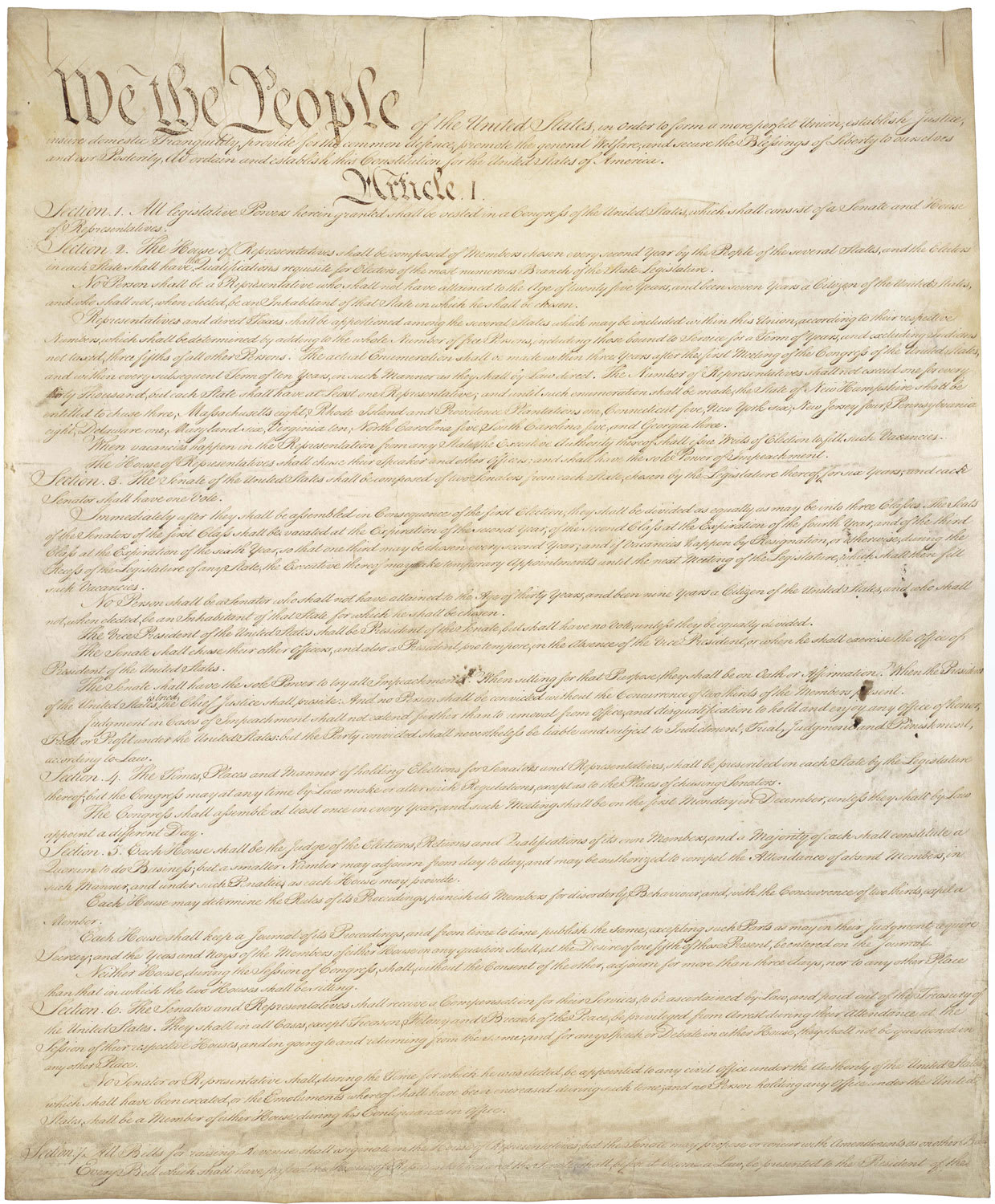
The Bill of Rights
The first ten amendments to the United States Constitution make up what we now call the Bill of Rights. In this collection of episodes, learn more about how the Bill of Rights came to be. You can also delve further into the history of the Fourth Amendment, which protects Americans from unreasonable search and seizure.
- Episode 259: American Legal History & The Bill of Rights
- Episode 062: Carol Berkin, The Bill of Rights
- Episode 260: Creating the First Ten Amendments
- Episode 261: Creating the Fourth Amendment
- Episode 262: Interpreting the Fourth Amendment
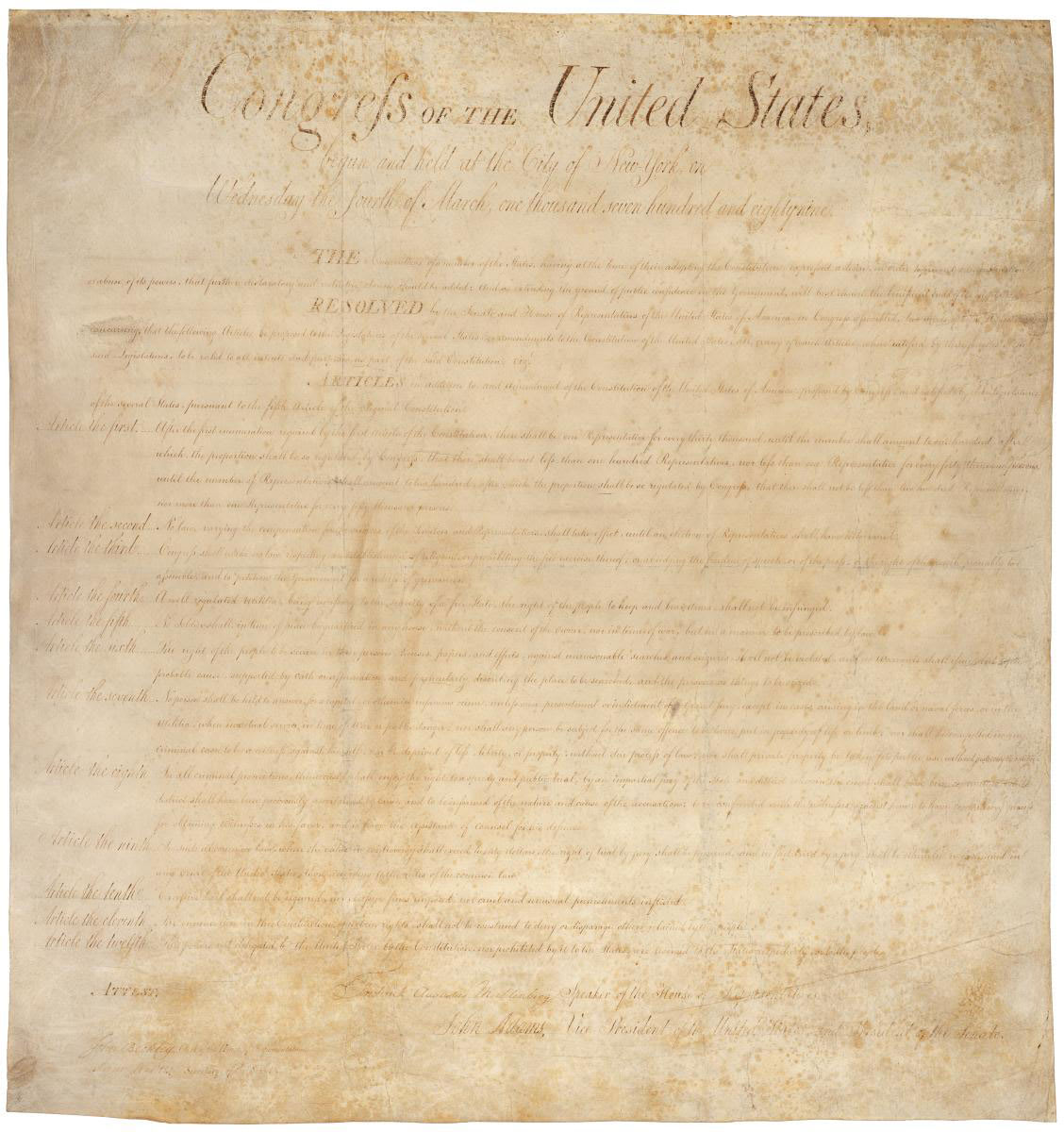
Governing under the Constitution
After the Constitution’s ratification, the Founding Generation was faced with the daunting task of making this document into a lived reality. To better understand the government that we have today, we first have to understand the government that the Founders created. This last batch of episodes explores the United States’ earliest forms of government, including debates over what to call the president, the early customs service, early Congress, the development of the American fiscal system, and the Eleventh Amendment.
- Episode 040: Kathleen Bartoloni-Tuazon, For Fear of an Elective King
- Episode 098: Gautham Rao, Birth of the American Taxman
- Episode 279: Lindsay Chervinsky, The Cabinet: Creation of an American Institution
- Episode 202: The Early History of the United States Congress
- Episode 338: The Early History of the United States Senate
- Episode 057: Max Edling, War, Money, and the American State, 1783–1867
- Episode 272: Origins of the Eleventh Amendment
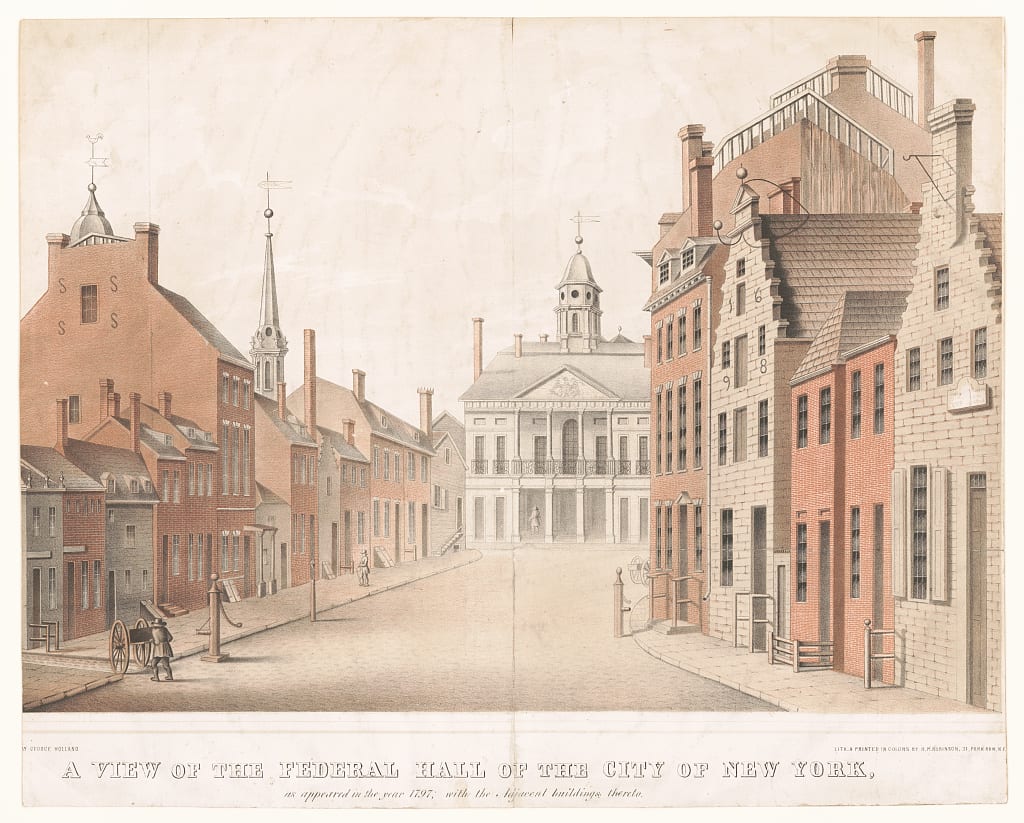
Whether you listen to our episode on the Bill of Rights or early Congress, you’ll have expanded your knowledge of the United States Constitution, and the role all United States citizens play in maintaining it. After all, framers like Benjamin Franklin and James McHenry did their part in 1787 by crafting the republic, and it is now up to us to keep it.
Listen to the Playlist
ENDNOTES
- James McHenry, Diary, September 18, 1787, Manuscript, James McHenry Papers, Manuscript Division, Library of Congress, https://www.loc.gov/exhibits/creating-the-united-states/convention-and-ratification.html#obj8.
- Extract from Thomas Jefferson to George Wythe, August 13, 1786, Jefferson Quotes and Family Letters, Monticello (website), https://tjrs.monticello.org/letter/1283; Constitution of Massachusetts, 1780, National Humanities Institute, http://www.nhinet.org/ccs/docs/ma-1780.htm; George Washington, “Eighth Annual Address to Congress,” December 7, 1796, American Presidency Project, https://www.presidency.ucsb.edu/documents/eighth-annual-address-congress; “79. A Bill for the More General Diffusion of Knowledge, 18 June 1779,” Founders Online, National Archives, https://founders.archives.gov/documents/Jefferson/01-02-02-0132-0004-0079; Thomas Jefferson to Richard Price, January 8, 1789, Library of Congress, https://www.loc.gov/exhibits/jefferson/60.html.
- “79. A Bill for the More General Diffusion of Knowledge, 18 June 1779,” Founders Online, National Archives, https://founders.archives.gov/documents/Jefferson/01-02-02-0132-0004-0079.
